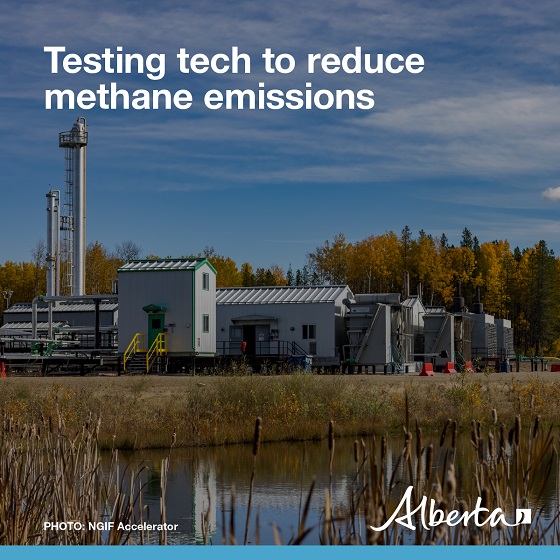Alberta
Diploma exams set to 20% for 2022-23 school year
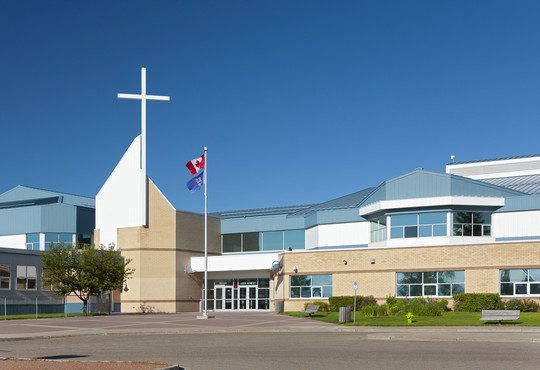
As students continue to address pandemic-related learning challenges, diploma exam weighting will be reduced to 20 per cent this school year.
Over the course of the pandemic, the government has responded to feedback from education system partners and made adjustments to the administration of diploma exams as required.
In response to feedback from students, parents and education partners about learning loss and well-being issues as a result of the pandemic, the government is taking a measured approach in transitioning the weighting of diploma exams over time. The weighting will return to 30 per cent in the 2023-24 school year.
“Since June of this year, I have met with over 40 public, separate and francophone school authorities and many other stakeholders and listened to their perspectives. Changing the weight of diploma exams will reduce the burden on students while still giving them valuable exam writing experience. We’re making this temporary change to place less of a burden on students and improve their mental health.”
Diploma exams are key to maintaining fairness and high standards for all students, no matter where they learn in Alberta. However, the government also recognizes the unprecedented challenges students faced in the 2020-21 and 2021-22 school years.
While Alberta’s government previously announced new literacy and numeracy assessments to support students in grades 1-3 who are struggling, the government also recognizes that senior high students are facing post-pandemic challenges, and the change in diploma exam weighting will benefit those students directly.
This decision also reflects the learnings from the Child and Youth Well-Being Panel Report and the recent findings in an Alberta School Councils Association survey of parents, which both recognized the learning loss students have experienced.
“The CASS board of directors supports the ministry’s transitional approach to returning diploma exam weighting to pre-pandemic levels. This decision is reflective of a recommendation an ad hoc committee of CASS made during the pandemic and takes a balanced approach between a return to normal and meeting the social and emotional needs of students.”
“The pandemic impacted all students and their learning in many complex ways, requiring a variety of additional supports to ensure their success. The minister’s acknowledgement of this, and the desire to reduce the mental health burden on students required to write diploma exams this year, is also important to their success. The Alberta School Councils’ Association (ASCA) appreciates the recognition that a transitional return to traditional diploma exam weighting will help to improve students’ mental health while giving them valuable exam writing experience.”
“ASBA is pleased that the government has reviewed high school diploma exam weighting as boards continue to focus on addressing student learning and mental health challenges. This will assist in relieving additional pressures while boards prioritize success of all students.”
Quick facts
- Diploma exams are normally administered in November, January, April, June and August.
- In 2015, the government reduced diploma exam weighting from 50 to 30 per cent, giving greater value to course work through the year and each teacher’s ability to assess a broad range of student knowledge and skills.
- In spring 2020, diploma exams were cancelled in April and June because students were learning from home for the last few months of the school year. They were successfully administered in August of that year.
- During the 2020-21 school year, all diploma exams were optional.
- For the 2021-22 school year, the government cancelled January diploma exams, and all remaining diploma exams for the year were weighted at 10 per cent.
- Alberta Education works with experienced teachers to develop diploma exams. The government publishes various resources, including previous diploma exam questions and guides, for students. These resources are available on alberta.ca.
Alberta
Working to avoid future US tariffs, Alberta signs onto U.S. energy pact

Louisiana Governor Jeff Landry and New Hampshire Governor Chris Sununu of the Governors’ Coalition for Energy Security
Premier Danielle Smith has joined the Governors’ Coalition for Energy Security to further support advocacy of Alberta’s energy and environmental interests with key U.S. states.
The coalition was established in September 2024 by U.S. State governors Jeff Landry (Louisiana) and Chris Sununu (New Hampshire) with the aim of ensuring energy security, lower energy costs, increased reliability, sustainable economic development and sensible management of energy resources and the environment. With 12 U.S. states already signatories to the coalition, Alberta is the first non-U.S. state to enter into this agreement.
By expanding energy ties with the U.S. and promoting cross-border energy trade and participation, Alberta is helping to build upon its North American Energy strategy. Alberta already accounts for 56 per cent of all oil imports to the U.S. – twice as much as Mexico, Saudi Arabia and Iraq combined – which is helping to drive job creation and prosperity on both sides of the border. Natural gas also plays an important role in North America’s energy mix. Alberta is the largest producer of natural gas in Canada and remains positioned to support the U.S. in filling their domestic supply gaps.
“I am honoured to join the Governors’ Coalition for Energy Security and would like to extend my sincere thanks to governors Landry and Sununu for the invitation. Alberta plays a vital role in North American energy security, serving as the largest supplier of crude oil and natural gas to the United States. With 200 billion barrels of recoverable oil, 200 trillion cubic feet of recoverable natural gas, significant natural gas liquids and ample pore space for carbon capture, Alberta’s contribution is set to grow even further as we look to work with the Trump Administration and other U.S. partners to increase our pipeline capacity to our greatest friend and ally, the United States. We are proud to collaborate with this coalition of allied states in advancing energy security, reliability and affordability for Americans and Canadians.”
“Our mission as an organization has not changed but Alberta’s welcome arrival to our group sparked a conversation about what our core mission is, and that is ensuring energy security in all its forms. Our members all share the common goal of enhancing and protecting energy options for our people and businesses, which leads to lower energy costs, increased reliability, sustainable economic development and wise management of energy resources and the environment. I welcome Premier Smith and the insights she will bring as the leader from a fellow energy-producing province, that like my state, is under a federal system of government where national imperatives are not always aligned with state or provincial interests.”
Alberta is a global leader in emissions reduction technology and clean energy solutions. The province has captured about 14 million tonnes of carbon dioxide through carbon capture, utilization and storage technology, and has the ability to support the U.S. in developing new infrastructure and supply chains for future energy markets in the areas of hydrogen, renewables, small modular reactors and others.
Alberta is also unlocking its untapped geological potential to help meet the increasing demand for minerals – many of which are used worldwide to manufacture batteries, cell phones, energy storage cells and other products. This includes the province’s lithium sector where Alberta’s government is supporting several innovative projects to develop new ways to extract and concentrate lithium faster and with higher recovery rates that are less capital and energy intensive and have a smaller land-use footprint.
As part of this coalition, Alberta looks forward to sharing best practices with states that already have expertise in these areas.
Quick facts
- The U.S. is Alberta’s largest trading partner, with C$188 billion in bilateral trade in 2023.
- In 2023, energy products accounted for approximately C$133.6 billion, or more than 80 per cent of Alberta’s exports to the U.S.
- The Governors’ Coalition for Energy Security’s 12 signatory states include Louisiana, New Hampshire, Indiana (Governor Eric Holcomb), Alabama (Governor Kay Ivey), Georgia (Governor Brian Kemp), Tennessee (Governor Bill Lee), South Dakota (Governor Kristi Noem), Mississippi (Governor Tate Reeves), Arkansas (Governor Sarah Huckabee Sanders), Oklahoma (Governor Kevin Stitt), Wyoming (Governor Mark Gordon) and Virginia (Governor Glenn Youngkin).
Alberta
New red tape reporting website will help ramp up housing construction in Alberta

Helping builders by putting an end to housing delays
Alberta’s new Stop Housing Delays online portal will allow developers, municipalities and other housing partners to report red tape and unnecessary home-building delays.
Alberta’s government is focused on ensuring Albertans have access to the housing they need, and that means working to streamline processes, cut red tape and reduce delays that are slowing housing construction down. As part of this work, government has launched a new online portal to help in these efforts.
The Stop Housing Delays online portal is now available for developers and municipal authorities to help identify areas that are preventing fast and efficient residential construction. This portal will help government identify and address barriers to building homes across the province.
“The Stop Housing Delays portal will allow Alberta’s government to hear directly from developers, municipalities and other partners on where delays are happening in the construction process. This will help identify and remove barriers, ultimately getting homes built faster and continuing Alberta’s record home-building pace.”
“Alberta’s government will continue to work with municipalities and find solutions to speed up the home-building process. The Stop Housing Delays portal will give us another tool to inform those discussions and identify areas where we can improve the pace of home building.”
Once developers, municipalities or industry partners have submitted their issue using the online form, government will collect and assess the information provided. Alberta’s government will be taking a collaborative, cross-ministry approach to ensure the appropriate departments are working together to find solutions where possible. Solutions may range from minor changes to policy reform.
Alberta’s government continues to support builders and encourage new residential housing construction by reducing red tape, incentivizing housing construction and supporting innovative strategies to build homes faster than ever.
“This webpage is an excellent opportunity to gather knowledge and further eliminate red tape. Government has been persistent in our approach of cutting red tape and removing roadblocks, and this will help to speed up residential construction. I look forward to hearing from developers and our other partners on how we can help get projects moving and Albertans in homes.”
Alberta continues to see strong housing starts and increases while other provinces across Canada are seeing a reduction in housing starts. The first half of 2024 saw 9,903 apartment unit starts in the province. This marks the highest amount in any half year in Alberta’s history, breaking the previous record of 9,750 set in 1977. Albertans will benefit from 33,577 new housing starts from January through September 2024, up 35 per cent from the same period last year. Alberta’s government remains focused on working with industry and non-profit partners to ensure that the province’s growing population has access to the housing it needs.
“This portal is a valuable tool for industry to highlight gaps, barriers and delays that may need to be prioritized and addressed by either local or provincial governments. Real solutions can only emerge through transparency, open communication and collaboration. This is an important step toward identifying the unique challenges each region and municipality faces in delivering attainable housing.”
Quick Facts
- Housing starts for January – September 2024 compared with January – September 2023
- Provincewide: 33,577 compared with 24,904 (up 35 per cent)
- Edmonton: 13,359 compared with 9,099 (up 47 per cent)
- Calgary: 17,414 compared with 14,141 (up 23 per cent)
- Lethbridge: 599 compared with 148 (up 305 per cent)
- Red Deer: 314 compared with 146 (up 115 per cent)
- Data shows Alberta had 10,699 purpose-built rentals, making up 32 per cent of all housing starts.
- Since 2019, Alberta’s government has invested almost $850 million to build more than 5,100 units and close to 900 shelter spaces. This includes projects we have committed to, that are in progress and that are complete.
- Together with its partners, Alberta’s government is supporting $9 billion in investments into affordable housing to support 25,000 additional low-income households by 2031.
Related information
-

 Digital Currency2 days ago
Digital Currency2 days agoConservatives urge Canadians to reject mandatory digital IDs proposed by Liberal gov’t
-

 Energy2 days ago
Energy2 days agoFederal government’s ’carbon-free’ electricity target far-fetched
-
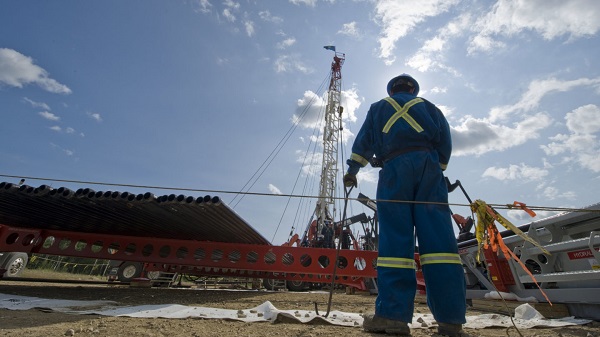
 Canadian Energy Centre1 day ago
Canadian Energy Centre1 day agoIgnoring the global picture and making Canadians poorer: Energy and economic leaders on Ottawa’s oil and gas emissions cap
-
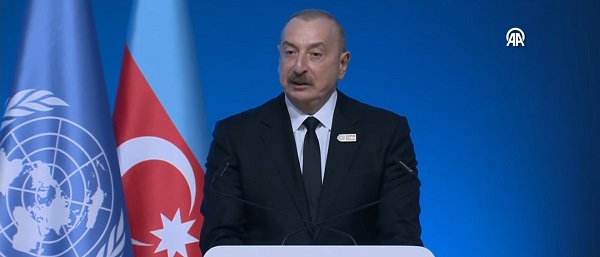
 Daily Caller2 days ago
Daily Caller2 days agoPresident Of Country Hosting UN Climate Summit Defends Fossil Fuels, Slams Media And Green ‘Hypocrisy’
-

 Disaster2 days ago
Disaster2 days agoFEMA skipping homes in disaster areas lures calls for federal probe
-

 Alberta1 day ago
Alberta1 day agoNew red tape reporting website will help ramp up housing construction in Alberta
-
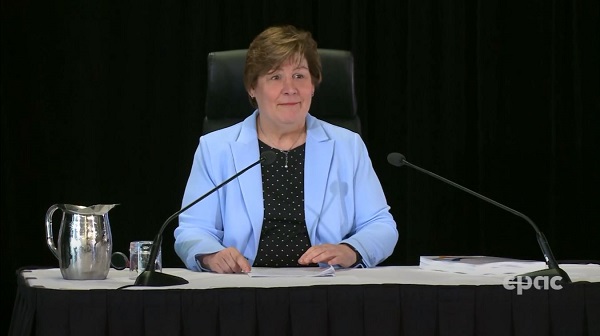
 espionage1 day ago
espionage1 day agoBreaking: Hogue Commission Will Hear From New Safety-Protected Witnesses On PRC Targeting of Chinese Candidates
-
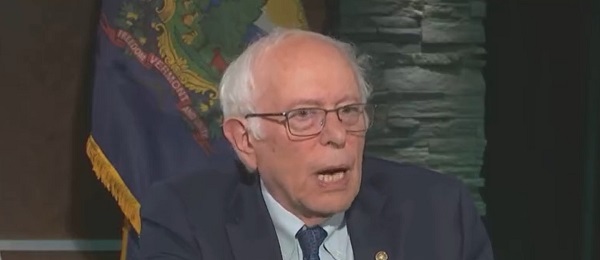
 Daily Caller2 days ago
Daily Caller2 days agoClimate Change Fanaticism Was The Big Election Loser





